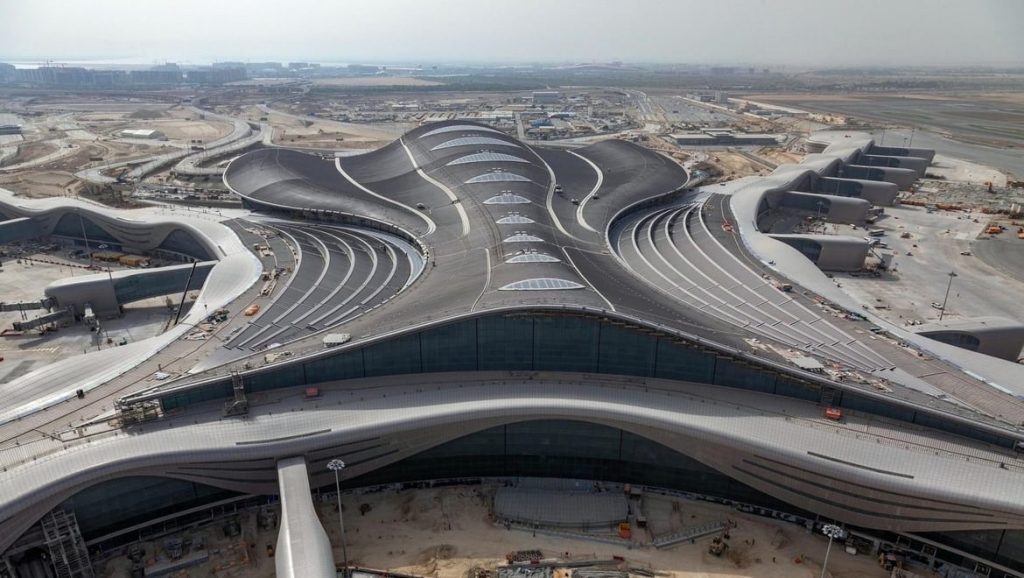
Abu Dhabi International Airport has cancelled its US$2.94 billion contract with a consortium that has been building a new mega terminal for almost 10 years.
Reuters revealed the Midfield Terminal Building project was cancelled because of an overrun on costs and continuous delays.
The consortium included United Arab Emirates-based Arabtec, Turkey’s TAV Insaat and Athens’ Consolidated Contractors Company (CCC).
The huge 742,000-square-metre terminal was originally designed to open for business in 2017, however, the project was delayed numerous times. In 2019, officials claimed the Midfield Terminal was 97.6 per cent complete, but the opening was pushed back for unspecified reasons, and then the pandemic induced further delays – now to a complete halt.
Other sources said the airport contracted Trojan Holding LLC to finish construction, however, the company did not respond to requests for comment.
Building an additional large capacity terminal was set to support its state-owned carrier, Etihad Airways. It was supposed to home 28,000 square metres of Duty-Free shops, 154 check-in counters, 27,500 square metres of passenger lounges and a baggage handling system that could carry 500,000 bags a day.
These lounge developments were under joint venture contracts with National Aviation Services (NAS) and Airport Dimensions. The partnership was allegedly to combine NAS’ regional expertise and Airport Dimensions’ experience in passenger quality care.
The launching of the project in 2012 was when the airline announced a transit hub in the UAE capital. However, supporting the airport’s usual capacity of 84 million annual passengers became decreasingly important as Etihad’s brand restructuring would not require a terminal that large anymore.
Announced late last year, Etihad Airways planned to scale down its operations and focus on becoming a mid-sized, full-service, boutique carrier.
With the announcement, Etihad had streamlined its organisational structure and removed a number of senior executive roles, announced employee layoffs, and said it will concentrate future operations on its wide-body fleet.
Etihad has also said it would retire its current 10 Airbus A380s along with the already removed A330s, due to the ongoing impact of the pandemic, suggesting the airline would shift its attention to its 25 Boeing 777s and 39 787 Dreamliners.
The Abu Dhabi national carrier reported a financial loss of US$1.7 billion last year due to the pandemic, however, following a few years of continuous annual loss, competing against Dubai-based Emirates and Qatar airways.




